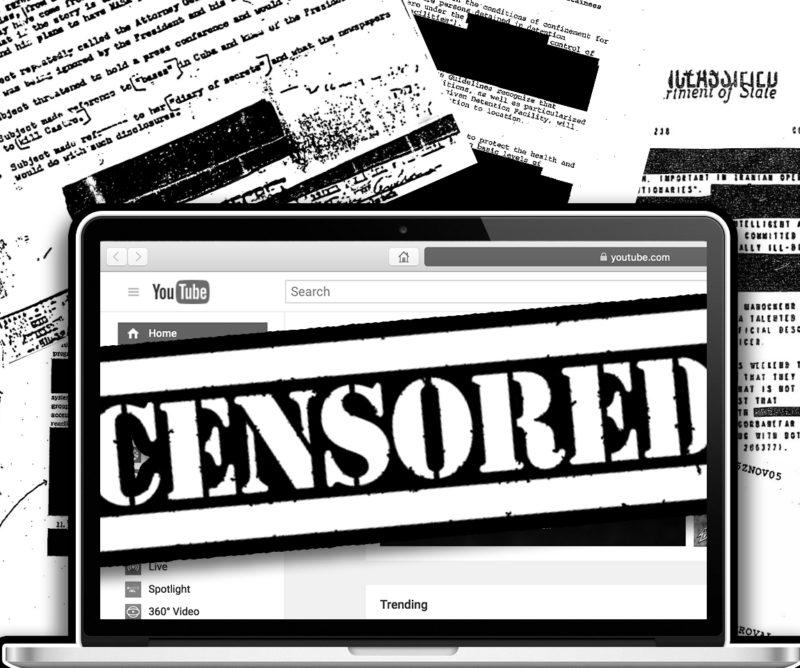On the morning of June 3, Lewis Bond uploaded a video with the title “I’m Being Sued.” In one long, emotional take, the YouTube creator explained to his audience that he was the target of a lawsuit for one of his videos on Stanley Kubrick’s cinematography.
Bond is a film student who publishes in-depth video essays under the name “Channel Criswell.” The essays are odes to his moviemaking idols. They are well-researched pieces, constructed with patience and care that rival that of the filmmakers themselves.
Despite the fact that Criswell is partially crowdfunded via Patreon, the educational and critical nature of the videos should shield him under Fair Use – a copyright provision that allows for the use of copyrighted media without permission for purposes of education or criticism. In spite of that, he was being sued for maximum damages up to $150,000.
“I’m Being Sued” was a cry for help, and it worked. Bond received help from the lawyers of Fair Used Protection Account (FUPA), a legal team set up to prevent this kind of suit from being carried out. Channel Criswell might have had a happy ending, but the issue is much bigger. This kind of lawsuit has become a recurring nightmare haunting online content creators “” and that’s just scratching the surface.
In the early days of the internet, individuals organized and regulated the web, resulting in an organic, all-but-unregulated environment. A single man, Jon Postel, used to administrate the worldwide IP address system. They called him the god of the internet. Today, increased corporate regulations and individual content creators face greater challenges to stay competitive in the online arena. A few years ago, the internet might have been a wild west where the boldest creatives rose to the top, but that gold rush is over.
Algorithms function as enforcers over the internet, the problem being that as robots, they are fundamentally black-and-white, which doesn’t help people using copyrighted materials under the protection of Fair Use. Lewis Bond’s lawsuit was the result of an automated comparison implemented by YouTube, one which that found similarities between his videos and Stanley Kubrick’s films. Score one for the robots.
In similarly disparaging news, YouTube recently restructured their Ad Policy to allow them to bar certain videos from being monetized. This means that creators will receive no money from videos determined not to be “advertiser friendly.”
If the term sounds nebulous, that’s because it is. Since 2012, YouTube has been arbitrarily demonetizing videos for their use of language and graphic content, without a set standard for what is and isn’t “advertiser friendly.”
For those who rely on YouTube for a large portion of their income, demonetization was like seeing the stock market crash. The fact that YouTube’s demonetization system is largely overseen by algorithms only added frustration to an already infuriating ordeal.
This is all part of an even larger trend of corporations taking control and monetizing the web. Channels like CollegeHumor, which at first glance seem to be an agglomeration of content creators, are often owned by larger parent companies. In CollegeHumor’s case, the owner is publicly traded InterActiveCorp, whose name even sounds like a villain from a “Tron” movie.
Maybe your favorite YouTuber is PewDiePie “” the channel with the most subscribers since December of 2013. Or maybe it’s Philip DeFranco, another household name since the early days of YouTube. They’re independent, right? Nope. PewDiePie is part of Maker Studios, which is owned by Disney Interactive, and Phil DeFranco belongs to Discovery Digital Networks, Discovery Communication’s digital branch.
This is not all to spread some anti-corporate message, or to bemoan the death of YouTube, as many already have. The influx of funding has increased the quality of the content we see in our newsfeeds, albeit bringing about the decline of the homemade, grungy style that characterized beloved early-internet sites like Albono wBlackSheep, Newgrounds or eBaum’s World.
These are problems that should concern you as an internet consumer. Copyright claims are out of control, demonetization threatens to homogenize YouTube into a blob of “advertiser-friendly” content and the rising standard of production value can be discouraging to someone wanting to enter the world of digital production.
The struggle to maintain the freedom of the internet is constant, so get used to it. A few years ago, the Senate entertained SOPA and PIPA, bills that tried to give government the ability to effectively pull the plug on copyright-infringing websites. More recently, net neutrality came to the foreground, with Internet providers arguing that high-speed internet is a luxury and not a utility. The Supreme Court did not agree, thankfully, but we have to keep our guards up.
Independent creators are the crown jewel of the meritocratic internet. As such, the ability to review viral cat videos should be cherished as the pinnacle of a digital democracy. If you agree, go find out how your favorite video creators are putting bread on the table. And if you can, maybe throw a few pennies their way. They might need them for the next time they get sued.







